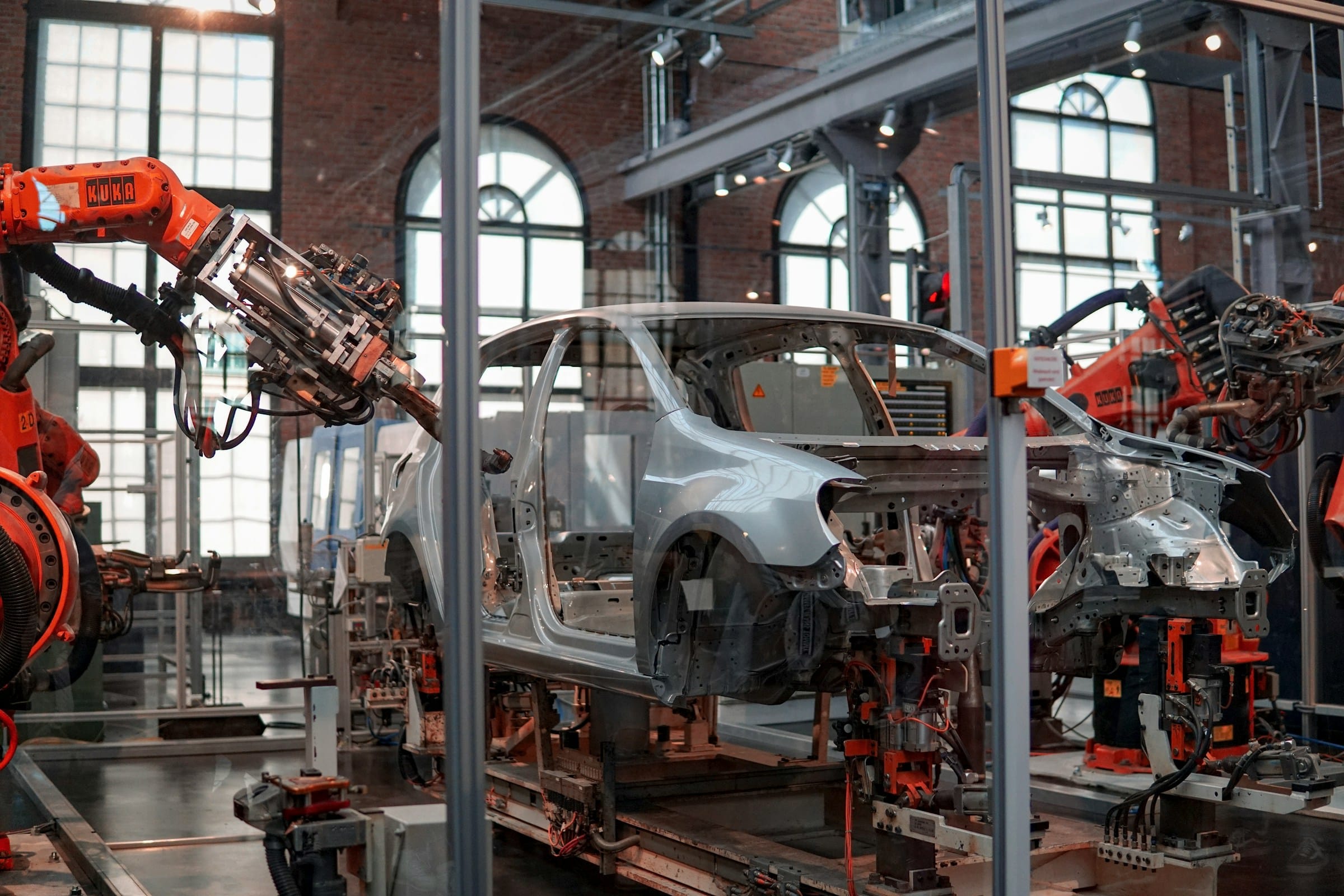As you navigate the modern industrial landscape, you may find yourself coming face to face with an unlikely associate: robots. These mechanical marvels are no longer just the stuff of science fiction — they are now commonplace in manufacturing facilities worldwide. But how exactly are they changing the status quo, particularly in custom manufacturing and personalization? Let’s delve into the specifics.
The Rise of Robots in Manufacturing
Manufacturing has always been an arena for innovation, a proving ground for new technologies that push the boundaries of what is possible. So, it’s no surprise that robots have found a home in this industry.
Also to see : How Can AI-Based Predictive Maintenance Prevent Industrial Equipment Failures?
Robots are playing an increasingly integral role in modern manufacturing processes, with manufacturers all over the globe adopting them to improve efficiency, quality, and cost-effectiveness. They are replacing traditional human-centric tasks with precise, automated operations that increase productivity and reduce errors. But how did we get here, and what does this mean for the future of manufacturing?
Robots in manufacturing aren’t a new phenomenon. They’ve been around since the 1960s, revolutionizing production lines with their precision and speed. However, advancements in robotics technology have propelled them from simple, repetitive task performers to complex, autonomous entities capable of making critical decisions and executing intricate tasks.
Also read : Can AI Help Optimize Electric Grids for Better Integration of Renewable Energy Sources?
Advanced robotics, powered by machine learning and data analysis, are transforming the traditional manufacturing processes. They offer a wealth of benefits that not only enhance the quality of products but also the speed at which they’re produced.
Automation: The Key to Efficiency and Quality
In the world of manufacturing, time is money. The quicker a product is produced without compromising on quality, the better. This is where automation, particularly robotic automation, shines.
Robotic automation is all about optimizing efficiency. Robots can operate 24/7 without needing breaks, holidays, or sick leave. They can perform tasks faster and with more accuracy than human workers, significantly reducing the time it takes to complete a production run. Moreover, they eliminate human errors that can compromise product quality.
In the realm of custom manufacturing and personalization, robots are proving to be incredibly valuable. They can quickly adapt to different product specifications, effortlessly switch between tasks, and ensure every product adheres to a high standard of quality. By automating these processes, manufacturers can achieve a level of efficiency and quality that is simply unattainable with a human workforce.
Streamlining Production Costs with Robotic Aid
One of the most significant advantages of robotics in manufacturing is the potential for cost reductions. While the upfront costs of purchasing and installing robotic equipment may seem steep, the long-term savings can be substantial.
Robots require less maintenance and fewer resources than human workers. They can also work around the clock, drastically reducing production time and increasing output. Moreover, they are not prone to mistakes or accidents that can result in costly product recalls or repairs.
In custom manufacturing, these cost savings are particularly noticeable. By automating intricate tasks that require a high level of precision, robots can reduce the amount of wasted materials and ensure a high yield of quality products. This not only saves manufacturers money but also makes their processes more sustainable.
Data-Driven Robotic Processes
A key aspect of modern robotic systems is their ability to utilize data effectively. Through sensors and advanced algorithms, robots can gather and analyze vast amounts of data in real time. This facilitates improved decision-making, predictive maintenance, and more efficient processes.
In the context of custom manufacturing and personalization, data-driven robotics can be a game-changer. Imagine a robotic system that can analyze customer preferences, adapt its production methods accordingly, and create personalized products on a mass scale. Such a system could dramatically streamline the manufacturing process and provide a level of personalization that is currently unheard of.
Robotic Personalization in Manufacturing
Personalization is becoming increasingly important in today’s consumer-driven market. People want products tailored to their specific needs and preferences, and manufacturers are responding. The challenge lies in creating personalized products at scale without inflating costs or sacrificing quality.
This is where robotics can make a significant impact. Advanced robotic systems are capable of handling the complexities of personalization, adjusting their processes to produce custom products at scale. Moreover, they can do this without the need for extensive human intervention, making the process more efficient and cost-effective.
Robotic personalization could usher in a new era of manufacturing, one where bespoke products are not just a luxury for the few but a norm for the many. This potential is drawing manufacturers towards robotics, and we can expect to see even more innovative uses of this technology in the years to come.
In summary, the impact of advanced robotics on custom manufacturing and personalization is profound. Advancements in robotics are making it possible for manufacturers to streamline their processes, enhance product quality, reduce costs, and deliver personalized products at scale. As the technology continues to evolve, we can only imagine what the future holds for this dynamic industry.
Advancements in Artificial Intelligence and Machine Learning in Robotics
With the rise of artificial intelligence and machine learning, robots are becoming more intuitive and sophisticated, capable of complex tasks that were previously only possible for human workers. These advancements are revolutionizing the role of robots in manufacturing, making them powerful allies in the production processes.
Artificial intelligence refers to the capability of robots to understand, learn, and make decisions based on data, enhancing their capabilities and the scope of tasks they can perform. Machine learning, a subset of artificial intelligence, enables robots to improve their performance over time. They can learn from their actions, adjust their behavior, and improve their efficiency based on real-time data.
These technologies are bringing unprecedented levels of precision, flexibility, and efficiency to manufacturing processes. In custom manufacturing, they enable robots to understand and execute complex, specialized tasks with remarkable accuracy.
Moreover, artificial intelligence and machine learning are contributing to quality control in manufacturing. Robots can detect and correct defects in real time during the production process, thereby ensuring the highest product quality. These advancements are transforming the traditional manufacturing processes into a more efficient and error-free operation.
Collaborative Robots in the Manufacturing Industry
In the realm of advanced robotics, a new breed known as collaborative robots or “cobots” is gaining traction. These robots are designed to work alongside human workers, enhancing their capabilities and complementing their skills.
Unlike traditional industrial robots, cobots are not confined to cages or isolated workstations. They are designed to work in close proximity to humans, assisting them in tasks that are either too dangerous, tedious, or complex.
Collaborative robots are particularly beneficial in custom manufacturing and personalization. They can quickly adapt to changes in production processes, making them ideal for creating bespoke, tailored products. Their ability to work seamlessly with humans also means that they can respond in real-time to instructions, allowing for more flexibility in manufacturing processes.
Furthermore, cobots can collect and analyze data from their surroundings, making them an integral part of the supply chain. They can identify bottlenecks, predict maintenance needs, and optimize workflows, thereby improving the overall efficiency of manufacturing operations.
Conclusion: The Future of Robotics in Custom Manufacturing and Personalization
The impact of advanced robotics on custom manufacturing and personalization is revolutionary. From enhancing product quality to streamlining production processes, robots are bringing about a paradigm shift in the manufacturing industry.
The advent of artificial intelligence and machine learning has transformed robots from mere machines to intelligent entities capable of learning and decision-making. They are helping manufacturers optimize their processes, reduce waste, and deliver high-quality products in real time.
Collaborative robots are further revolutionizing manufacturing by working alongside human workers, enhancing their capabilities, and responding swiftly to changes in production processes. Their ability to analyze data and optimize workflows is making them an invaluable asset in the supply chain.
As we move forward, we can expect to see more innovative uses of robotics in custom manufacturing. With the advent of mass customization, we are likely to see robots playing an even bigger role in creating bespoke products. The Red River of change is flowing, and it’s clear that robotics manufacturing is here to stay.
In a nutshell, the future of custom manufacturing and personalization lies in harnessing the power of advanced robotics. As they continue to evolve and improve, robots are poised to drive efficiency, innovation and quality in the manufacturing industry to new heights.











